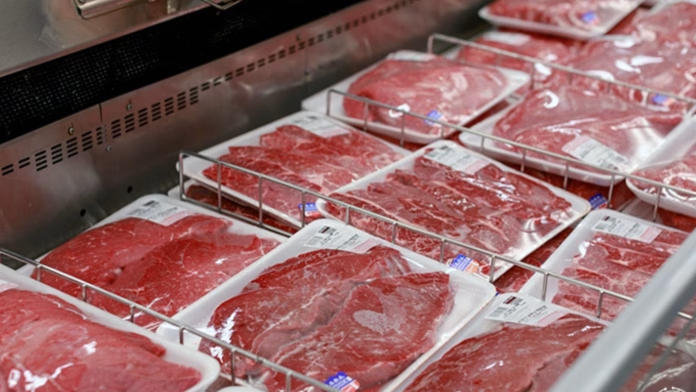In an effort to make the halal certification process more efficient for meat and meat product exports from India, the DGFT, a department of the Ministry specializing in import and export issues, has created guidelines on halal certification.
According to the Ministry of Commerce, meat and meat products can only be exported with a “halal certified” label if they are manufactured, processed, and packaged in a facility holding a valid certificate issued by a Quality Council of India-accredited body. This requirement applies to industry professionals.
The Ministry also stated that the process for exporting meat and meat products without halal certification will remain the same. Additionally, for export shipments to countries with halal regulations, the producer, supplier, or exporter must comply with the importing country’s requirements.
In a notification, the DGFT stated that policy conditions for halal certification of meat and meat products have been established. It further stated that all current halal certification bodies must obtain accreditation from the NABCB (National Accreditation Board for Certification Bodies) for ICAS (Indian Conformity Assessment Scheme) halal within six months.
The notification said, “Meat and meat products shall be allowed to be exported as ‘halal certified’, only if produced, processed, and/or packaged in facilities having a valid certification under the iCAS of the Quality Council of India (QCI), issued by a certification body duly accredited by the NABCB as per the guidelines issued or amended from time to time.”
This notification pertains to products such as bovine meat, fish, chilled meat, sheep and goat meat, sausages, and related items. The ‘India Conformity Assessment Scheme (i-CAS)’ was created with the goal of streamlining the halal certification process for meat and meat products within India.
Until recently, the Indian government did not have a mandatory halal certification system in place, as there was no national regulation governing certification procedures.
As of 2021, the worldwide halal food market was valued at USD 1,978 billion and is expected to grow to USD 3,907.7 billion by 2027. With a substantial Muslim population, India presents significant opportunities for entrepreneurs interested in halal-based ventures.
India’s halal industry is still in its early stages, with no particular labeling mandates for halal food imports. Halal certification is granted by various private companies in India, signifying that the food or products are permissible. Halal India Pvt. Ltd. and Jamiat Ulama-i-Hind Halal Trust are the most prominent halal-certifying organizations in India.
The International Halal Accreditation Forum (IHAF) is a global network of accreditation bodies responsible for implementing halal standards within their respective economies. While countries such as Indonesia, Malaysia, Thailand, the Philippines, the UAE, Pakistan, and others have their own halal standards, there are currently no universal halal standards in place.
The report noted that the swift expansion of the halal industry has resulted not only in halal technologies and advancements but also in halal-related legislation and regulations that are yet to be globally standardized. The halal market now appeals to not only the Muslim population but also non-Muslim consumers due to shifting consumer perceptions.





